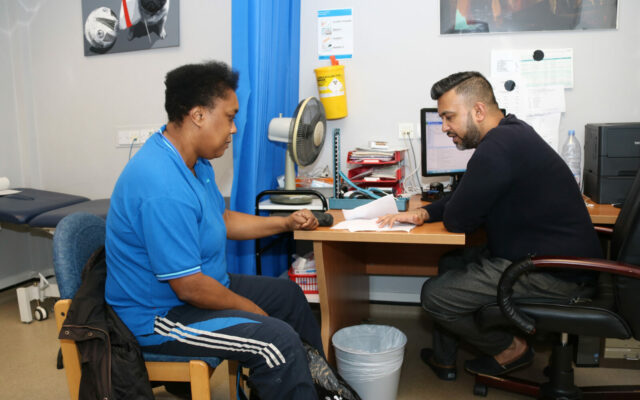If a person has a job but is too sick to work or has to self-isolate, they may be able to claim welfare benefits or other types of financial relief to help them through the ongoing crisis. Two main schemes to help employers and people in work were set up in March, and have since been amended and extended.
The job retention scheme provides a grant to employers so they can pay the wages of staff on their payroll who are temporarily not working – known as being furloughed – during the coronavirus outbreak. For self-employed people, the government introduced the Self-Employed Income Support Scheme, which pays a taxable grant to those eligible that depends on their taxable profits.
People who are off work because they are ill or have to self-isolate should be eligible for statutory sick pay (SSP). Staff commonly get sick pay as part of their employment contract, and this will include SSP. People employed through an agency count as an employee so can get SSP, but those with self-employed status cannot get it.
Employment and support allowance
People who do not qualify for SSP or who have already claimed for the maximum 28 weeks for which it can be paid may be able to get employment and support allowance (ESA). This is usually awarded to claimants who have “limited capability for work”.
Any person who has coronavirus symptoms or is self-isolating is deemed to have limited capability for work, so does not need to provide a fit note from a doctor. If a client has Covid-19 or is self-isolating and needs to provide an “isolation note” (for their employer, for example), one can be obtained at https://111.nhs.uk/isolation-note/. Normally, there are “waiting days” before a person can be paid SSP or ESA. These have been suspended where the claim is related to Covid-19.
Normally, there are “waiting days” before a person can be paid SSP or ESA. These have been suspended where the claim is related to Covid-19.
A client may be able to claim universal credit (UC) even if they get SSP or ESA. The basic allowances in UC (and working tax credit) were increased in April by
approximately £20 a week (around £1,000 a year). It is important that any client who is already receiving a pre-UC, meanstested benefit (such as income-related ESA or housing benefit) gets advice from an experienced welfare rights adviser before claiming UC.
Claiming at a distance
Measures to protect the health of both Department for Work and Pensions (DWP) staff and clients have been introduced. Job centres were closed in late March to all but the most vulnerable claimants, such as homeless people, who were to be seen by appointment only. The usual work availability and work search requirements have been suspended for claimants who have to look for work. Having to attend appointments at job centres in person was suspended from 19 March.
The application process for UC involves verifying the claimant’s identity. People can now verify who they are over the phone as job centres are closed. Since the crisis, the DWP has made the welcome change of allowing people to claim ESA and pension credits online.
All face-to-face medical assessments for UC, ESA and personal independence payments (PIPs) had been suspended at the time of writing and this is likely to continue for a while. Assessments with the claimant can now be done over the phone. Health assessors can still make paper-based PIP assessments using application forms and documents such as medical reports, letters and care plans.
For clients whose PIP award is about to end, their award may be extended at its current level during the crisis. Any person in this position should contact the PIP unit to confirm this. Carers remain entitled to carer’s allowance if they have a temporary break in caring because either they or the people they care for have to isolate because of Covid-19 infection.
A £500 million hardship fund has been established to provide additional relief for households in England that are struggling to pay their council tax bills. In Scotland, the council tax support fund has been increased by £50 million. Clients should contact their local authority about applying for this.
The DWP has dealt with a huge increase in benefit claims and demands on its services because of the coronavirus crisis. As always, clients should get advice and make a claim for benefits or other financial support as early as possible.
As Community Living was going to press, the picture was changing, with some financial support provided for a fixed period and other forms of support and relaxation of the rules, such as those around benefit claims, expected to last for longer periods. Readers should always seek the most up-to-date information and advice available.
Charlie Callanan is an adviser and writer on welfare rights
Further information and advice
Department for Work and Pensions. Coronavirus support for employees, benefit claimants and businesses. Press release. 19 March. https://tinyurl.com/wvykjtq Citizens Advice. www.citizensadvice.org.uk




